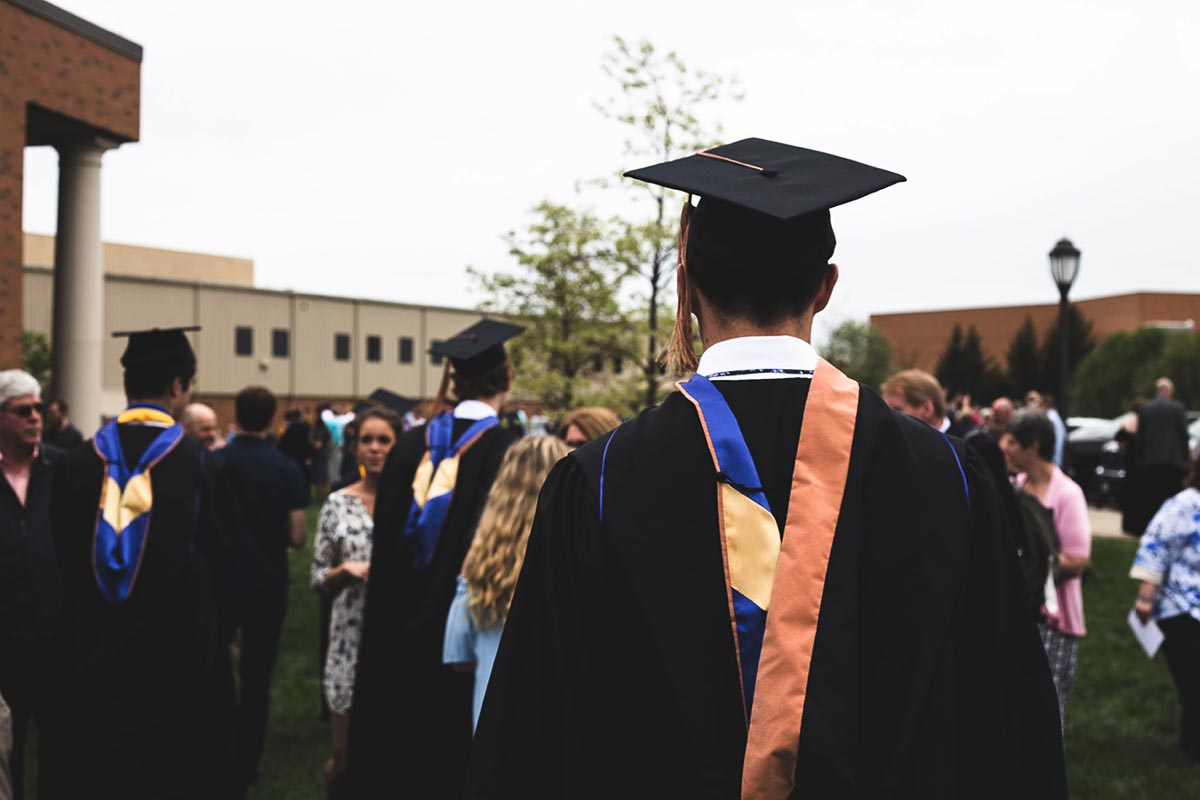Long-term trends suggest that to stay ahead, getting an education beyond high school is increasingly necessary. The Georgetown University Center on Education and the Workforce predicts 70% of all jobs will require some education beyond high school by 2027. And the Texas Higher Education Coordinating Board (THECB) estimated in 2015 that by 2030, 60% or more of all new jobs in Texas will require some level of higher education. With a rapidly changing economy, these patterns are concerning.
To maintain a vibrant workforce, the state of Texas has made great strides toward improving access to higher education. In 2015, the THECB launched its 60x30TX plan, a 15-year strategic plan to make sure 60% of Texans between the ages of 25 and 34 have a degree or certificate by 2030. 60x30TX’s goal is ambitious, especially considering research indicates only 29% of Texas public school students earn a postsecondary degree within 12 years of completing high school.
Implementing the policies necessary to reach 60x30TX’s goal within 10 years requires systemic, structural changes. State policymakers must make investments that ensure students and families are academically prepared for college-level coursework, can afford it and, most importantly, have the information and personalized support necessary to get there.
Academic preparation matters — a lot
Students with high test scores and grades and who complete advanced coursework are more likely to enroll in and graduate from college, according to research from Rice University’s Houston Education Research Consortium (HERC). While it may require significant investment, schools can improve college outcomes by encouraging students — even those who struggle — to take Advanced Placement courses and enroll in International Baccalaureate programs. Exposing students to higher-level work can help them develop college aspirations, study skills and self-efficacy. Encouraging students to enroll in advanced courses cannot guarantee success, educators should implement tools and interventions that address unique student needs and provide academic support services such as tutoring.
Reducing financial barriers is key
The rising cost of college — on average, tuition at a public four-year college is $13,800 and $9,200 for a public two-year college — is a major concern for students and families. That price tag doesn’t include housing, food and transportation — major expenses for most students. Education should be seen as a public good and an investment in a stronger overall economy, and lawmakers should consider adopting policies that reduce or eliminate financial barriers to enrollment. For example, states like Tennessee have established programs that provide students with two years of tuition-free attendance at community or technical colleges. And this fall, Houston Community College students who meet certain academic and financial qualifications can attend at no cost.
Access to information is crucial
Applying to college is a complex process with a lot of choices: The United States boasts 3,883 degree-granting public and private institutions across a wide range of selectivity. Each institution has its own requirements for entry: some want a high school diploma while others request more substantive academic information in an application. Although research published by the Stanford Institute for Economic Policy Research and the National Bureau of Economic Research finds knowledge-based approaches can help students successfully navigate the college application process, a recent College Board study suggests information may not be enough to make it to college. Sometimes, students need more-personalized guidance.
College advising efforts must involve students as well as their families because families have a profound influence on a child’s decision to attend college. Students interviewed in a recent HERC study were not making decisions on their own about going to college — conversations with parents, siblings and sometimes peers and mentors played a big role. One student, for instance, tied college to social mobility and helping her family: “If I go to this school, I’ll know after college I’ll be making roughly this figure, and I know that … the better school you go to, the higher the prestige, therefore, the higher the salary. … That’s very important to me because I want to take care of my family.”
A lot of the burden falls on high schools
Since attending college is a collective decision, the way schools talk about higher education and support students has to change to achieve the 60x30TX goal. Parent outreach programs can improve early childhood outcomes. Parent-outreach programs can improve college outcomes as well. School staff needs to reach out beyond students to their families and identify new strategies to deliver information and provide support that is understandable, applicable and actionable.
If educators hope to see a 60% rate of degree or certificate attainment in the next 10 years, policymakers must make investments that guarantee students and families are academically prepared for college-level coursework, can afford it and, most importantly, have the information and personalized support necessary to get there.
Brian Holzman, Ph.D., is a research scientist at Rice University’s Houston Education Research Consortium (HERC). The consortium, which is part of the Kinder Institute for Urban Research, currently partners with 11 Houston-area school districts to guide data-driven, equity-minded policy.

